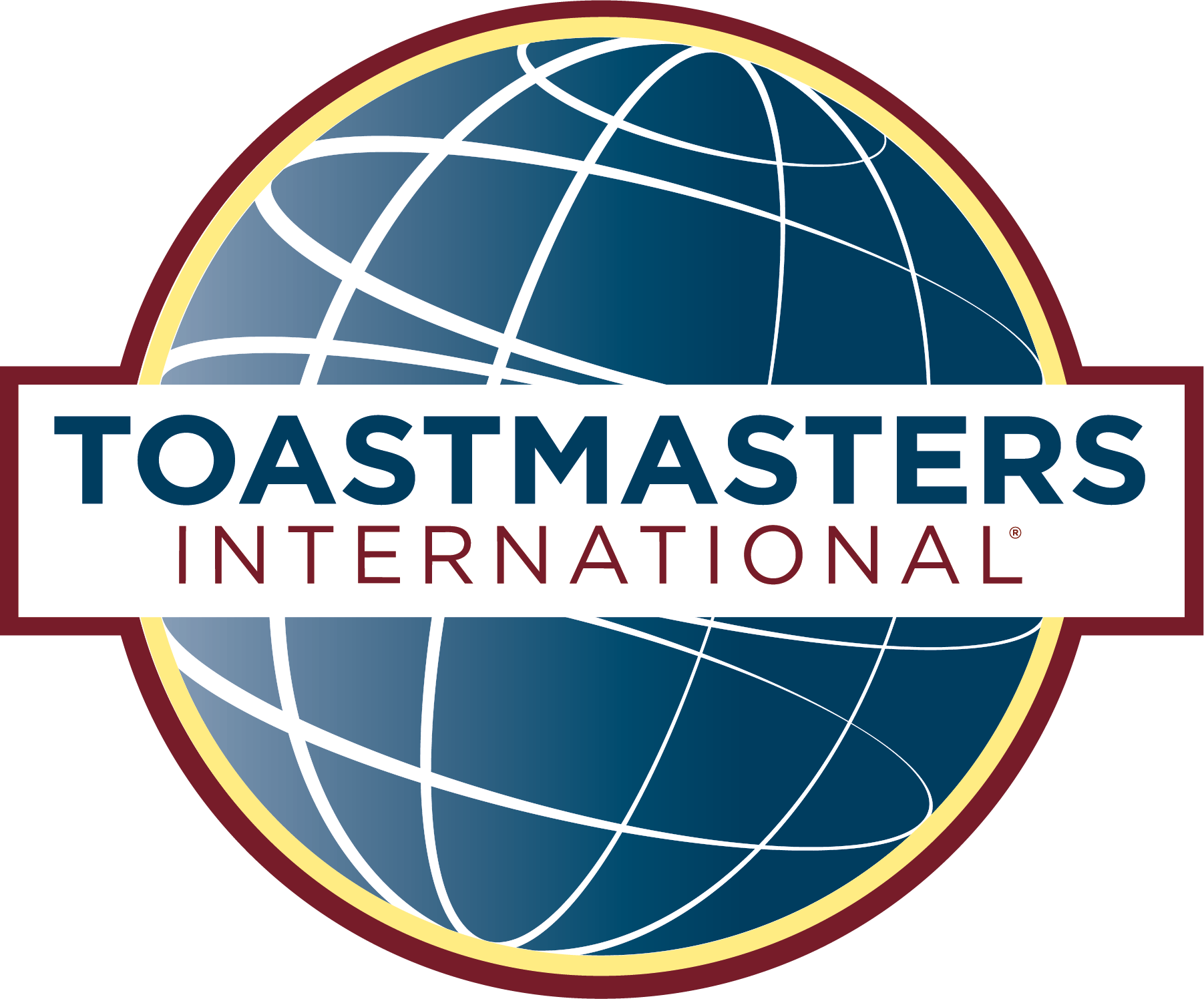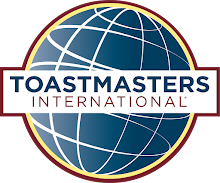http://www.toastmasters.org/ToastmastersMagazine/ToastmasterArchive/2009/January/Self-Sabotage.aspx
Do you ever want to start a project, then don’t? Have you ever said yes to a speaking engagement only to cancel later? Have you ever promised yourself that you wouldn’t engage in a bad habit and then found yourself doing it even more?
People who become involved in speechmaking often find themselves sabotaging their presentations. Whether it’s forgetting the name of the couple you are toasting, arriving late for a talk or accidentally leaving your PowerPoint file at home – you might be surprised to find that you are at the core of your own undoing.
It’s not only neophytes who encounter this problem; experienced speakers find themselves blocking potential victories as well.
“Essentially, self-sabotage is consciously or unconsciously blocking yourself from succeeding or accomplishing some task or project,” says Kevin Hogan, a psychologist and international speaker.
It’s a process that happens to everyone, he notes, but some have a more ingrained habit than others. Hogan has an audio program called “Lifestorms: Blasting through Self-Sabotage for Breakthrough Results” that addresses the issue in detail.
Much of our “mental programming” has to do with expectations that start early in life. What was expected of you as a child? As a teenager? As an adult? For example, Toastmaster Steph Scott, a young woman in her 30s, received a number of powerful messages from her parents. Her mother exerted pressure on her to be perfect, saying things like, “You brought up your C grades to B grades, which means you can then bring up your Bs to As.” Her mother also pushed her to become more popular.
Scott’s father, meanwhile, taught her to stifle emotions by shutting her down with statements like, “Was it that good?” or “It couldn’t be that bad.”
Imagine how hard it was for Scott to give her first Table Topics presentation when voices in the back of her head said “Get it right” but “Don’t be passionate about it.”
Hogan, the psychologist, says kids who have been driven too hard to excel are particularly vulnerable to undermining themselves as adults.
“Children who had demands of being perfect,” he says, “develop a perfectionism mindset where they never do anything in life, because they can’t be perfect at its accomplishment.”
Confidence Issues
Susan Guild, an experienced Toastmaster, grew up in an intellectual family. Her father and brother are lawyers. Advanced degrees were expected. She says her family and friends deeply affected her confidence.
“People frequently ask me about my education with questions like, ‘Are you working on your master’s or doctorate degree?’ My parents always valued intelligence backed up by scientific proof,” says Guild, a member of the Lexington Toastmasters in Lexington, Massachusetts.
As a result of these messages, it’s been difficult for her to trust her own intuition. “I see those old patterns as lint that is deeply matted through us,” she says.
Guild says one of the most common ways speakers sabotage their talks is when negative self-esteem gets the better of them. They believe others see them in the same light as they see themselves – and if that light is dim, it will be difficult to shine in front of a group.
At times she has tried too hard to win her listeners’ approval, Guild says. “The last speech I made, I decided to use lots of facts, because my Toastmasters group likes facts and numbers. But I lost my own individuality by attempting to do what I thought they liked. I realized that I was sabotaging myself by trying to please the club. It was like seeking others’ approval rather than giving respect to myself.”
Susan Coates, a Distinguished Toastmaster, says when she tries to copy someone else’s style, it gets in the way of her presentation. “Everyone has a different style and when they try to be someone else, it makes for a less effective presentation.”
Ways We Impede Our Success
Some people block their own success by putting off their preparation until the last minute. “I’ve been procrastinating to deliver my second speech,” says Manjunath Mavinakere, a member of Break Time Toastmasters in Houston, Texas. “It’s been a few months since I’ve given my Ice Breaker, and I have a lack of knowledge on the subject I want to speak about. Many times I feel I know the topic, but when I try to expand on it, it just goes way off board.”
Mavinakere feels that his procrastination stops him from succeeding at work as well. “The opportunities I miss to show my communication skills in front of people who are from different departments of the company stop me from moving ahead in my work.”
These are a few other ways that people undermine their own effectiveness:
- Not being willing to take risks
- Speaking too softly to be heard
- Doing just enough to get by
- Making excuses for poor performance by blaming things like illness or not having enough time to prepare adequately
- Allowing fears (like speech anxiety) to call the shots
The concept of self-fulfilling prophecy implies that if we expect something to happen in the future, then it will happen. For example, if you think you’re a lousy speaker or will do a poor job, you will find ways to bring those expectations to fruition. You’ll sabotage that speech. Perhaps you’ll keep dropping your materials and look foolish and disorganized, or you will find that your equipment isn’t working and that you could have prevented this situation if you had checked on the equipment earlier.
The opposite is true as well. If you expect to put on a dynamic presentation, you’ll achieve that outcome through positive actions, such as remembering to wear your power suit or doing vocal exercises the day of the talk.
This mirrors the “law of attraction” philosophy: that what we think about the most often, with the greatest intensity, will then take place. So if you focus on an appreciative audience or a standing ovation, you will have a more effective presentation than if you concentrate on sweaty palms or a sleepy audience. Speakers who focus on successful productions project more energy, confidence and enthusiasm.
Step Away From Sabotage
Many of us have approached speaking engagements as drudgery, as a serious and sobering business, a dreaded task. But it doesn’t have to be that way. Guild suggests you start picturing your presentations in a new light by asking yourself what could be fun or fulfilling about this project. She calls the process “going from the musts to the magic.”
She recommends changing focus from the risk of the task to its possible rewards, whether that involves gaining new clients, spreading the word about “going green” or receiving a burst of applause at the end of the speech.
“Still, the most important thing,” Guild says, “is to capture the essence of your message. Look in your heart to see why you want to give this speech. There you’ll find your magic.”
Judi Bailey is a writer in Lakewood, Ohio, and a frequent contributor to the Toastmaster. Reach her at author48@cox.net.
Block Out Damaging Behavior
Here are some helpful steps to avoid sabotaging yourself as a speaker:
- Develop awareness of how you sabotage yourself, especially in regards to giving talks. “Because self-sabotage is unconscious,” Dr. Hogan says, “no one is aware of it when they are actually engaging it. The benefit of being able to be in check is being in charge. When the unconscious mind is quelled, then the conscious mind can move forward and achieve.”
- Dig in Deeper. Og Mandino espoused this philosophy in his book The Greatest Salesman in the World. Allow your passion about the topic of your talk to drown out any attempts at self-sabotage.
- Accept your own style. Don’t try to be a Martin Luther King Jr. sound-alike or pattern your mannerisms after your favorite TV journalist. Be the best you that’s possible.
- Use affirmations. “Affirmations,” says Susan Guild, “have to be coupled with an inner belief.” In other words, you really have to believe what you’re saying. So if you don’t believe it when you say, “I’m a terrific speaker,” then find some other aspect of yourself that you can more realistically compliment, such as the sound of your voice or the ability to do excellent research. Then create a believable statement like “I do a terrific job researching material for my speeches.”
- Commit the benefits of public speaking to memory. This is a good principle to practice on the day of your speech. You can even write them down and keep the list in your pocket or purse as a reminder. They can include a greater sense of confidence, more career contacts and a chance to meet interesting people.
- Monitor your progress. Most behavioral experts agree that keeping track of your actions not only keeps you accountable to yourself, but gives you a running record of your progress. Pick up a notebook and begin to jot down the incidents of self-sabotage and the times you haven’t given in to the urge to jeopardize yourself.
- Create a personal reminder. Guild found a clever way to keep awareness alive: She bought a charm bracelet and two charms. One charm had “best” written on it; “friend” was inscribed on the other. “I also wear it to honor myself while I’m doing presentations. The bracelet is especially valuable whenever anyone in the audience has pushed my buttons.”
- Stick close to Toastmasters. Undoubtedly you have found that there’s no better place to obtain support than from other members. Don’t sell this short. Your club can help you to enjoy the process of becoming a better speaker.
Judi Bailey is a writer in Lakewood, Ohio, and a frequent contributor to this magazine. Reach her at author48@cox.net.





No comments:
Post a Comment